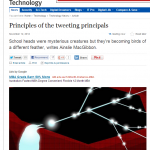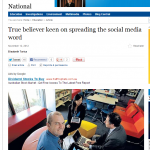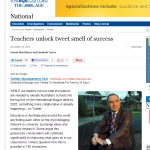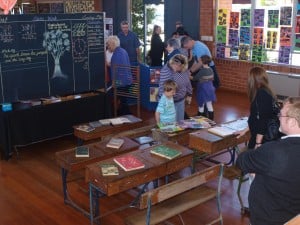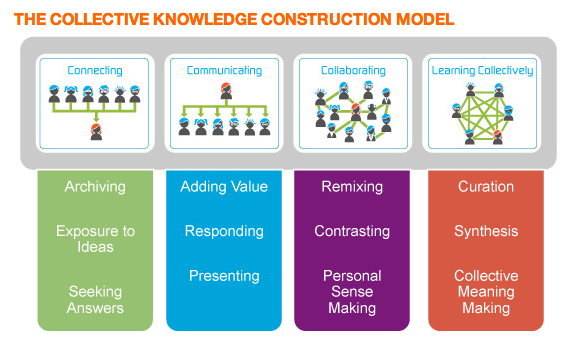My previous post highlighted what I perceive to be wonderful leaps forward in our collaborative and purposeful use of Web 2.0 tools. We recently held a parent forum where parents were encouraged to give feedback on all spheres of our operation within the school – we sought warm and cool feedback and it will be no surprise that we received both.
I will have to admit to a fair amount of surprise about the comments on our blogging. Many positive mentions were made about the improved home/school communication and window in to the classroom, however, there was more negativity than I expected. Basically, it appears that we have not communicated or it has not been accepted that the value of blogging is worth the emphasis we place on it. This is obviously from a small sample of parents and a few vocal ones but nevertheless is important. From reading the comments, I think I can separate the reactions to valuing Class Blogs, but not valuing or understanding Student Blogs.
One parent made a valid comment about blogs needing to be purposeful, going on to suggest that they include spelling words etc. My feeling is that that parent and others are doing what we all do when relating to education and relating it to our own experience as students. Trying to transport our experience into today’s world.
There is a mindset shift required to understand the added value provided by publishing our work in an on-line space instead of writing in our exercise books. This Parent Forum highlighted to me that we are yet to fully inform our parent community of this concept and get them on board. On further reflection, I think we also need to re-visit the concept with our staff as well to ensure a consistent approach across our school.
Earlier this year, twenty of our senior primary students voluntarily embarked on the Student Blogging Challenge. As with any venture, there were mixed reactions. On the whole though, it was wonderful. It was very worthwhile with many ‘teachable’ moments coming from the on-line interactions and it seems to have really inspired many other students who are now embarking on the current round of the Blogging Challenge. I have noticed how our new set of bloggers have taken to the medium with enormous enthusiasm and great skills. They seem to know that they have an audience, they have strategies for attracting comments, they interact with each other with quality comments. They have learnt a great deal from their peers who are now mentoring them.
Ever since the parent forum, I have in the back of my mind, how to get the message across to parents ?
